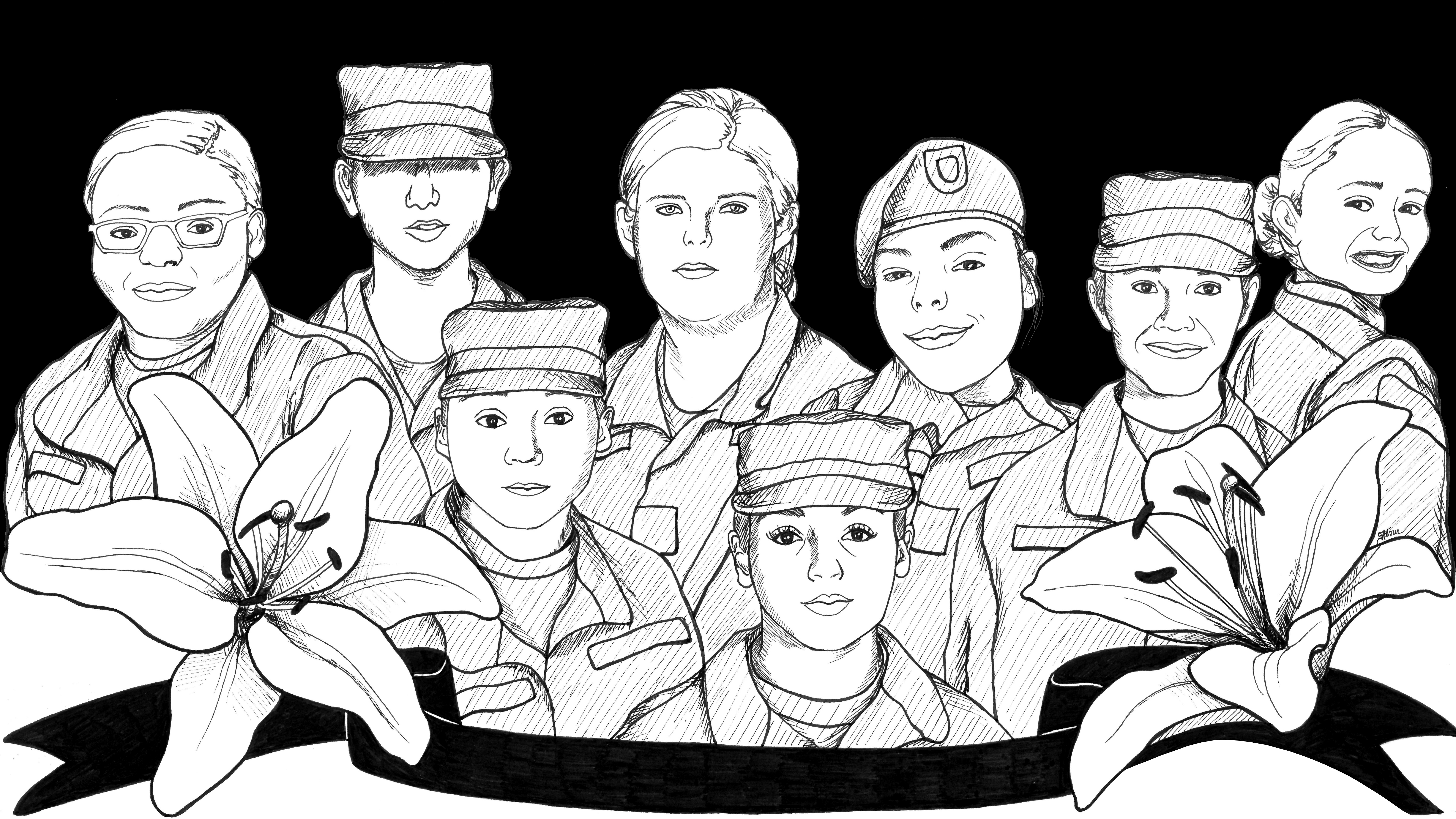Note: The Fuller Project contributed reporting for a new five-part series by The War Horse, a nonprofit newsroom dedicated to reporting on the human impact of military service. You can access the first story below.
Extract from Short Changed: How The Army Failed Spc. Adrienne Barillas
On a Saturday evening in September 2018, Spc. Adrienne Barillas went barhopping with fellow soldiers stationed at a U.S. Army base in South Korea.
Barillas, who several soldiers described as the first person they met when they joined the unit—a smiling, welcoming, comforting presence—loved to cook food from back home in Belize and to serve it to others in the barracks where she lived. She carried her welcome far past her job in-processing those new to the unit by organizing events for single soldiers. She was invited to every party, friends said. Her bosses called her a go-getter, the person depended on to do a job without supervision.
After initially joining the Army to help pay for college, she told her mom she might try to make a career of it. She was tight with her family and had just returned from leave. Her new husband said the couple spent every spare moment FaceTiming or texting, planning how they could be stationed together to start their new lives.
She was beautiful, he said.
“Adrienne loved to surround herself with people,” her mother said. “And people liked her.”
Like many young people living in military barracks with 60 or so other 20-somethings, there were skirmishes: She and her roommate didn’t get along. Barillas had a tendency to drink too much with her friends, and then to get emotional. She told friends her father’s business was failing and her brother was headed to jail, and that she needed to support them financially—heavy stress for a private first class making about $2,200 a month, minus taxes.
And she had talked, in the past, about attempts to kill herself, once even trying to jump out of an eighth-floor window in front of her fiance and her roommate, though she said she was too drunk to remember it. She told her mental health provider. She told friends.
That September Saturday evening, once again, Barillas drank too much and got emotional, friends and coworkers said. Even so, many of them said what happened next surprised them.
By the end of the evening, Barillas was dead. She had been happy while home on leave, her mother said. She had been happy in her new marriage, her husband said. She had been eager to complete the paperwork to get stationed with him, her coworkers said. The thought that her daughter would kill herself after appearing so excited about her future was enough to cause her mother to wonder if she was getting the truth—enough for her to ask for a second autopsy.
And it was enough to make her wonder if the Army had done enough to save her daughter.
Barillas desperately needed help. In the months leading to her death, a fellow soldier took advantage of Barillas’ intoxication to have sex with her, she told friends, but she did not report it, saying she was too embarrassed. On at least one occasion someone followed her to her barracks room, she told friends. A coworker sexually harassed her on multiple occasions, according to an investigation. Then, the married, senior-enlisted soldier assigned to help her with her harassment case developed a sexual relationship with her. She sought help from mental health services, only to be lost in the system—even after she told her therapist she had tried to take her own life.
Barillas joins dozens of other young women who died in the years following the 9/11 attacks, when thousands of them joined the military and went to war, assuming, along with their families, that the only enemy they would face would come from the outside. Instead, their dreams of a military career or of school or family were dashed by a system that often left them hopeless in the face of sexual assault, depression, negligence, or violence. Their families struggled to find answers to the most basic question:
Why, in an organization meant to provide the best security in the world, had their sisters, daughters, and wives not been safe?
Continue reading the story here.


 Thomas J. Brennan
Thomas J. Brennan
